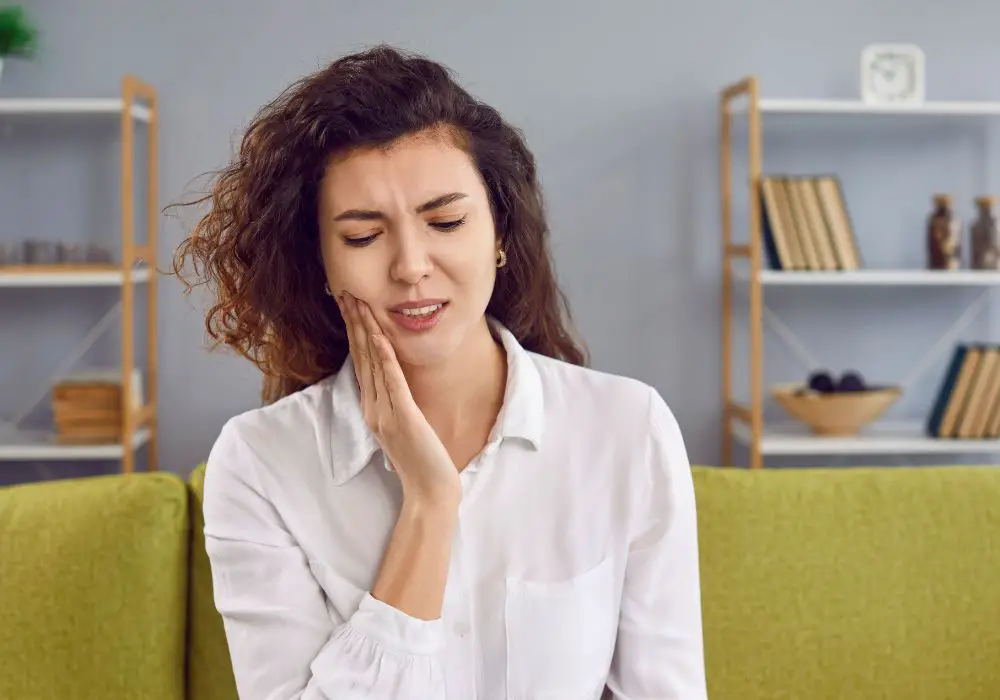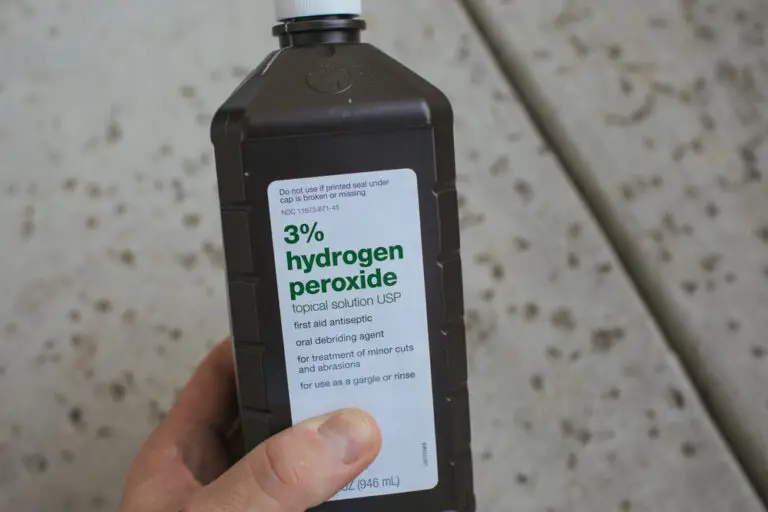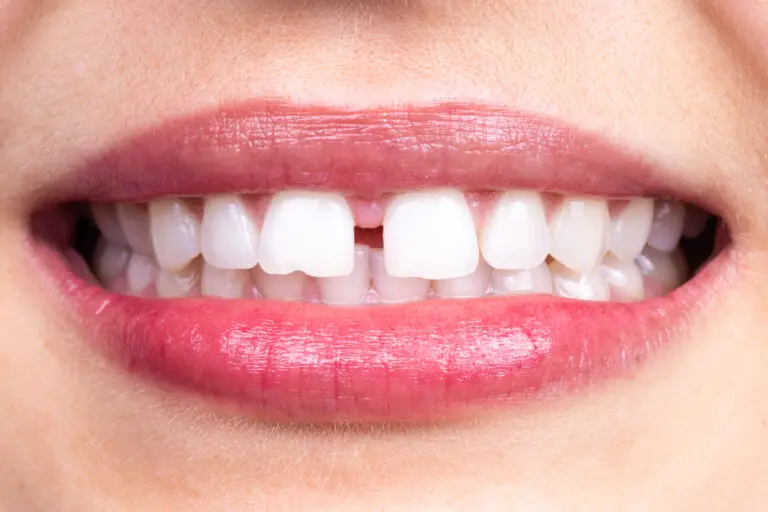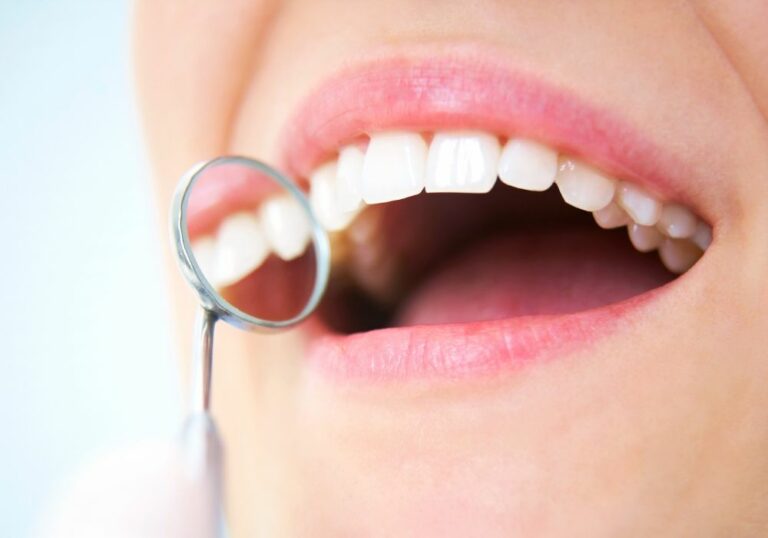When you’re sick, you may experience a range of symptoms, including fatigue, fever, and body aches. But did you know that tooth and gum pain can also be a common symptom of illness? Many people experience discomfort in their teeth and gums when they’re sick, but is it normal? In this article, we’ll explore the connection between illness and dental pain to help you understand what’s happening in your body.
One common cause of tooth and gum pain during illness is sinusitis. When you have a cold or the flu, your sinuses can become inflamed and swollen, leading to pressure and pain in your upper teeth. This is because the roots of your upper molars are located close to your sinuses, so any inflammation in the sinus area can put pressure on these teeth. Additionally, a fever can also cause tooth pain by causing the blood vessels in your gums to expand, leading to inflammation and discomfort.
While tooth and gum pain during illness can be uncomfortable, it’s generally considered a normal symptom that will go away on its own as you recover from your illness. However, if your dental pain is severe or persistent, it’s important to see a dentist to rule out any underlying dental issues. In the next section, we’ll discuss some tips for managing tooth and gum pain during illness.
Understanding the Link Between Illness and Oral Discomfort

When you’re sick, you may experience a wide range of symptoms, including tooth and gum pain. This discomfort can occur due to several reasons, such as sinus pressure, inflammation, and infections. Let’s explore some of the common causes of oral discomfort during illness.
Sinus Pressure
Sinus pressure can lead to tooth pain when you’re sick because the sinuses are located near the roots of the upper teeth. When the sinuses become inflamed and congested, they can put pressure on the roots of these teeth. This pressure can cause pain, especially when you’re lying down or bending over. If you’re experiencing sinus pressure, you can try using saline rinses, taking pain relievers, and staying hydrated to alleviate discomfort.
Inflammation and Infections
Some research suggests that inflammation and infections caused by oral bacteria can lead to heart disease, clogged arteries, and stroke. Moreover, periodontitis, a severe gum infection, has been linked to premature birth and low birth weight. Therefore, it’s crucial to maintain good oral hygiene, such as brushing twice a day, flossing daily, and visiting your dentist regularly to prevent inflammation and infections.
Teeth Clenching and Grinding
Illness-related stress can cause you to clench or grind your teeth, leading to tooth pain and sensitivity. If you’re experiencing stress-related tooth pain, you can try relaxation techniques, such as deep breathing, meditation, and yoga, to reduce stress levels.
In summary, oral discomfort during illness can occur due to sinus pressure, inflammation, infections, and teeth clenching and grinding. Maintaining good oral hygiene, staying hydrated, using saline rinses, taking pain relievers, avoiding certain foods, and practicing relaxation techniques can help alleviate discomfort.
Common Illnesses That Can Cause Oral Pain
When you are sick, it is not uncommon to experience oral pain. Some common illnesses that can cause oral pain include:
- Flu: The flu can cause a variety of symptoms, including a sore throat, fever, and body aches. These symptoms can lead to oral pain, including toothaches and gum pain.
- Sinus Infections: Sinus infections can cause pain and pressure around the nose and eyes, but they can also cause pain in the teeth and gums. This is because the sinuses are located close to the roots of the upper teeth.
- Strep Throat: Strep throat is a bacterial infection that can cause a sore throat, fever, and swollen lymph nodes. It can also cause oral pain, including toothaches and gum pain.
- Common Cold: The common cold can cause a variety of symptoms, including a sore throat, cough, and congestion. These symptoms can lead to oral pain, including toothaches and gum pain.
- Mononucleosis: Mononucleosis, also known as mono, is a viral infection that can cause fatigue, sore throat, and fever. It can also cause oral pain, including toothaches and gum pain.
If you are experiencing oral pain while sick, it is important to take care of your oral health. Be sure to brush and floss regularly, and use an antiseptic mouthwash to help prevent infection. You may also want to talk to your doctor or dentist about pain management options, such as over-the-counter pain relievers or prescription medications.
Symptoms of Oral Pain When Sick

If you are experiencing oral pain when sick, it is important to identify the symptoms to determine the cause of your discomfort. Here are some common symptoms associated with oral pain when sick:
- Toothache: Toothache is a common symptom of oral pain when sick. It can range from a mild ache to a sharp, throbbing sensation that makes it hard to eat, drink, or talk. Sinus pressure can cause tooth pain when you’re sick because the sinuses are located near the roots of the upper teeth.
- Sensitivity to hot and cold: If you experience sensitivity to hot and cold foods or drinks, it could be a sign of oral pain when sick. This sensitivity can be caused by a variety of factors, including tooth decay, gum disease, or a sinus infection.
- Swollen gums: Swollen gums can be a symptom of oral pain when sick. This can be caused by a variety of factors, including gum disease or an infection in the mouth.
- Bad breath: Bad breath can be a symptom of oral pain when sick. This can be caused by a variety of factors, including an infection in the mouth or sinuses.
- Difficulty chewing or swallowing: If you have difficulty chewing or swallowing, it could be a sign of oral pain when sick. This can be caused by a variety of factors, including tooth decay or an infection in the mouth or throat.
If you are experiencing any of these symptoms, it is important to see a dentist or doctor to determine the cause of your oral pain. They can provide you with a proper diagnosis and treatment plan to help alleviate your discomfort.
Possible Causes of Teeth and Gum Pain
Experiencing teeth and gum pain when sick is not uncommon. Here are some possible reasons why you might be experiencing pain:
- Sinus infection: Your sinuses are located near your upper teeth and can cause pain in your teeth and gums when they become inflamed or infected.
- Dehydration: When you are dehydrated, your mouth can become dry, which can lead to gum irritation and pain.
- Medication side effects: Some medications can cause dry mouth or other side effects that lead to gum and tooth pain.
- Canker sores: These small, painful sores can develop on the gums or inside the mouth and can cause discomfort.
- Tooth decay: When bacteria in your mouth break down food particles, it can lead to tooth decay and pain.
- Gingivitis: This is a mild form of gum disease that can cause redness, swelling, and pain in the gums.
- Periodontitis: This is a more serious form of gum disease that can cause damage to the bone and tissue that support your teeth, leading to pain and tooth loss.
- Teeth grinding: If you grind your teeth at night, it can cause pain and sensitivity in your teeth and gums.
If you are experiencing teeth and gum pain when sick, it’s important to speak with your dentist or healthcare provider to determine the underlying cause and receive appropriate treatment.
When to Seek Medical Attention

If you are experiencing tooth or gum pain while sick, it is important to pay attention to the severity and duration of the pain. While it is normal for teeth and gums to be sensitive during illness, there are certain signs that may indicate a more serious issue that requires medical attention.
Here are some signs that you should seek medical attention:
- Severe pain: If your tooth or gum pain is severe and persistent, it may be a sign of a more serious issue such as an abscess or infection.
- Swelling: If you notice swelling in your gums, face, or neck, it may be a sign of an infection that requires immediate attention.
- Fever: If you have a fever along with tooth or gum pain, it may be a sign of a systemic infection that requires medical attention.
- Difficulty swallowing or breathing: If you are having difficulty swallowing or breathing along with tooth or gum pain, seek medical attention immediately as this could be a sign of a serious infection or abscess.
If you are experiencing any of these symptoms, it is important to seek medical attention as soon as possible to prevent further complications. Your dentist or doctor can diagnose the issue and provide appropriate treatment to alleviate your pain and prevent further damage to your teeth and gums.
Preventing Teeth and Gum Pain When Sick
When you’re feeling under the weather, the last thing you want to deal with is tooth and gum pain. Fortunately, there are some steps you can take to prevent this discomfort. Here are some tips:
Practice Good Oral Hygiene
Even when you’re not feeling your best, it’s important to continue brushing and flossing your teeth. This will help prevent the buildup of bacteria that can lead to gum disease and tooth decay. Make sure you’re brushing twice a day for at least two minutes each time. Use a soft-bristled toothbrush and fluoride toothpaste. Don’t forget to floss at least once a day to remove food particles and plaque from between your teeth.
Stay Hydrated
Drinking plenty of fluids can help keep your mouth moist and prevent dry mouth. Dry mouth can lead to tooth decay and gum disease. Make sure you’re drinking water throughout the day, and avoid sugary or acidic drinks that can damage your teeth.
Use Over-the-Counter Medications
If you’re experiencing tooth or gum pain, over-the-counter pain relievers like acetaminophen or ibuprofen can help. Just make sure you follow the instructions on the label and don’t exceed the recommended dosage. You can also use a warm compress on your face to help reduce sinus pressure.
Avoid Trigger Foods
Certain foods can aggravate tooth and gum pain. Avoid hard, crunchy, or sticky foods that can irritate your teeth and gums. Also, try to avoid sugary or acidic foods and drinks that can damage your teeth.
Visit Your Dentist
If you’re experiencing persistent tooth or gum pain, it’s important to visit your dentist. They can determine the underlying cause of your pain and recommend the appropriate treatment. Don’t wait until your next scheduled appointment if you’re in pain – call your dentist right away to schedule an emergency visit.
By following these tips, you can help prevent tooth and gum pain when you’re sick. Remember to practice good oral hygiene, stay hydrated, use over-the-counter medications, avoid trigger foods, and visit your dentist if necessary.
Home Remedies for Oral Pain Relief

If you are experiencing oral pain due to sickness, there are several home remedies that you can try to alleviate the discomfort. Here are some options to consider:
Saltwater Rinse
One of the most effective home remedies for oral pain relief is a saltwater rinse. Mix a teaspoon of salt in a cup of warm water, and swish the solution around your mouth for 30 seconds before spitting it out. This can help to reduce inflammation and kill bacteria in the mouth.
Cold Compress
If you are experiencing swelling or inflammation in the mouth, applying a cold compress can help to reduce the discomfort. Simply wrap a bag of ice or a cold pack in a towel, and hold it against the affected area for 15-20 minutes at a time.
Tea Bags
Tea bags can also be used to relieve oral pain. Steep a tea bag in hot water for a few minutes, then allow it to cool slightly before placing it on the affected area. The tannins in tea can help to reduce inflammation and soothe pain.
Clove Oil
Clove oil is a natural analgesic that can be used to alleviate oral pain. Simply apply a small amount of clove oil to a cotton swab, and dab it onto the affected area. Be sure to dilute the oil with a carrier oil, such as coconut oil, to avoid irritation.
Hydrogen Peroxide Rinse
A hydrogen peroxide rinse can help to kill bacteria in the mouth and reduce inflammation. Mix equal parts hydrogen peroxide and water, and swish the solution around your mouth for 30 seconds before spitting it out.
These home remedies can be a helpful way to alleviate oral pain when you are sick. However, if your symptoms persist or worsen, it is important to seek medical attention from a healthcare professional.
Medical Treatments for Oral Pain
If you’re experiencing oral pain due to sickness, there are several medical treatments that can help alleviate your discomfort. Here are a few options to consider:
Over-the-Counter Pain Relievers
Over-the-counter pain relievers such as acetaminophen (Tylenol) and ibuprofen (Advil) can help relieve oral pain caused by sickness. These medications work by reducing inflammation and blocking pain signals in the body. Be sure to follow the recommended dosage instructions on the label and talk to your doctor if you have any concerns.
Prescription Pain Medications
If over-the-counter pain relievers aren’t effective, your doctor may prescribe stronger pain medications such as opioids. These medications should only be used as directed and under the supervision of a healthcare provider, as they can be addictive and have potential side effects.
Mouth Rinses
Mouth rinses can help relieve oral pain and reduce inflammation caused by sickness. Rinsing with salt water can help soothe sore gums and reduce swelling, while antimicrobial mouthwashes can help kill bacteria and prevent infection.
Oral Anesthetics
Oral anesthetics such as benzocaine can help numb the mouth and relieve oral pain. These products are available over-the-counter in the form of gels, sprays, and lozenges. Be sure to follow the instructions on the label and talk to your doctor if you have any concerns.
Antibiotics
If your oral pain is caused by an infection, your doctor may prescribe antibiotics to help clear up the infection and relieve your symptoms. Be sure to take the antibiotics as directed and finish the entire course of treatment, even if you start feeling better.
Remember, it’s important to talk to your doctor or dentist if you’re experiencing oral pain, especially if it’s severe or persistent. They can help determine the underlying cause of your pain and recommend the best treatment options for your specific situation.
Frequently Asked Questions
Why do my teeth hurt when I’m sick?
If you’re experiencing tooth pain while you’re sick, it could be due to sinus pressure. Sinuses are located near the roots of the upper teeth, and when they become inflamed and congested, they can put pressure on the roots of these teeth, causing pain. Additionally, some illnesses can cause dehydration, which can lead to dry mouth and tooth decay, resulting in pain.
Can a cold cause swollen gums?
Yes, a cold can cause swollen gums. When you’re sick, your immune system is working hard to fight off the illness, and this can cause inflammation in your gums. Additionally, if you’re congested, you may breathe through your mouth more often, which can dry out your gums and cause them to become irritated and swollen.
What causes sudden tooth pain during illness?
Sudden tooth pain during illness can be caused by a variety of factors. As mentioned earlier, sinus pressure can put pressure on the roots of your upper teeth, causing pain. Additionally, dehydration can lead to dry mouth and tooth decay, which can cause sudden tooth pain. Finally, some illnesses can cause inflammation throughout the body, which can lead to tooth pain.
Why do my teeth hurt when I have a cold drink?
If your teeth hurt when you have a cold drink, it could be due to tooth sensitivity. When the enamel on your teeth wears down, it can expose the sensitive inner layer of your teeth, causing pain when you consume cold or hot foods and drinks. Additionally, if you have a cavity, the cold drink can cause pain by irritating the nerves in the affected tooth.
Does being sick affect your teeth and gums?
Yes, being sick can affect your teeth and gums. Dehydration can cause dry mouth, which can lead to tooth decay and gum disease. Additionally, some medications taken while sick can cause dry mouth or other side effects that can affect your oral health.
How can I relieve tooth and gum pain while sick?
To relieve tooth and gum pain while sick, you can try rinsing your mouth with warm saltwater, applying a cold compress to your face, or taking over-the-counter pain relievers. Additionally, staying hydrated can help prevent dry mouth and tooth decay. If your pain persists, it’s important to see a dentist to determine the underlying cause and receive appropriate treatment.






